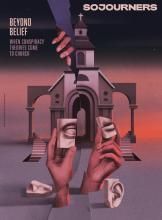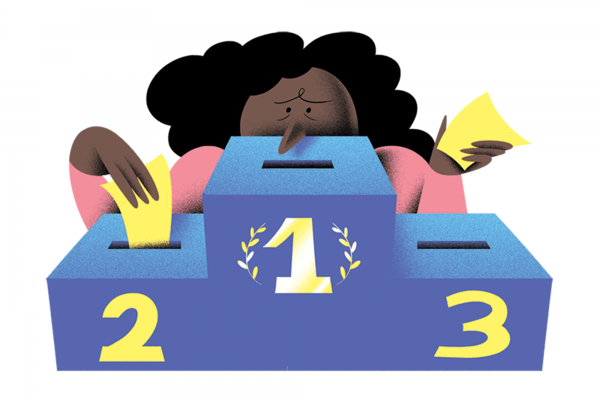ACROSS THE COUNTRY a number of places are using or are considering adopting ranked choice voting for state, local, or federal elections. If you’re unfamiliar with ranked choice voting (RCV), that’s too bad, because other than the most recent here’s-how-to-make-the-perfect-garlic-bread TikTok video, this is just about the biggest news there is right now. But let me take a moment to explain.
Ranked choice voting is a process in which voters rank their candidates in order of preference. If no candidate receives more than 50 percent of the vote, the candidate with the fewest votes is eliminated and the voters who chose that last place candidate as their first choice have their vote shifted to their second choice, and so on, until there is a winner. If you’re with me so far and like the idea, feel free to stop reading and go sign a petition for RCV. If you’re still confused, let me offer an example.
Earlier this year, the children’s ministry team at my church needed to decide which book our K-5 kids should read for the upcoming quarter. Each of the 21 teachers submitted the name of a book we felt would be appropriate. We then ranked the submitted books in order of preference. Of the 21 books, my top three picks were The Mueller Report by Robert S. Mueller III, Gilead by Marilynne Robinson, and The Cost of Discipleship by Dietrich Bonhoeffer.
Read the Full Article

